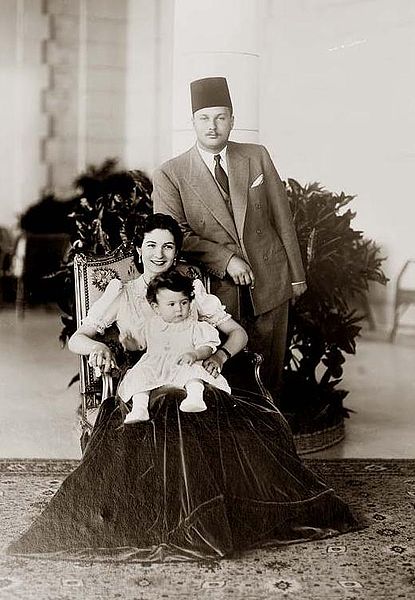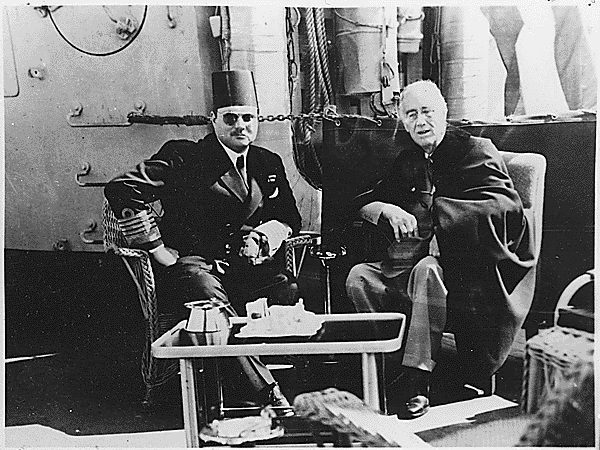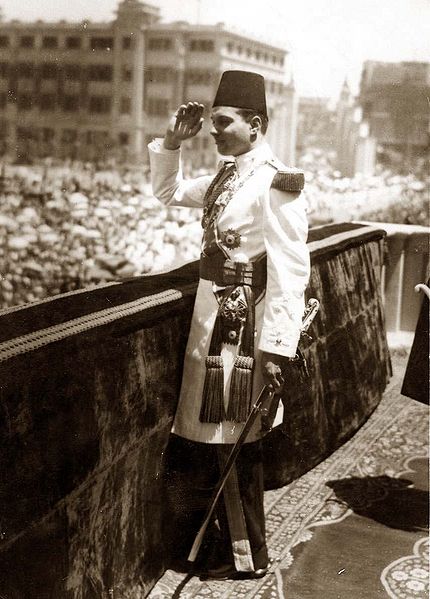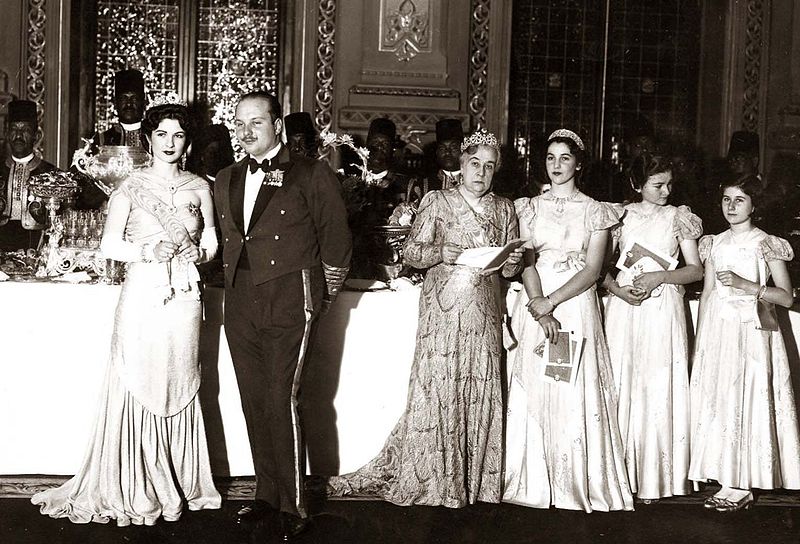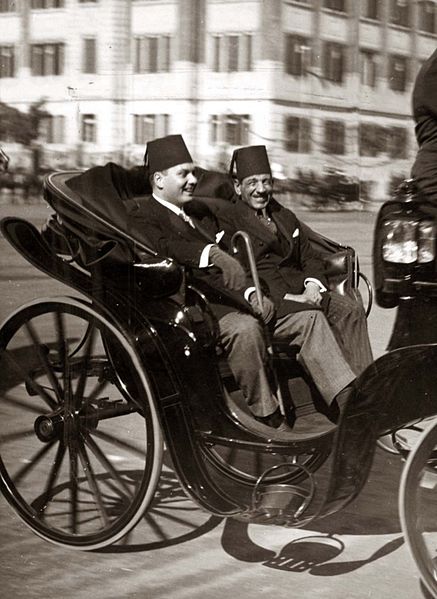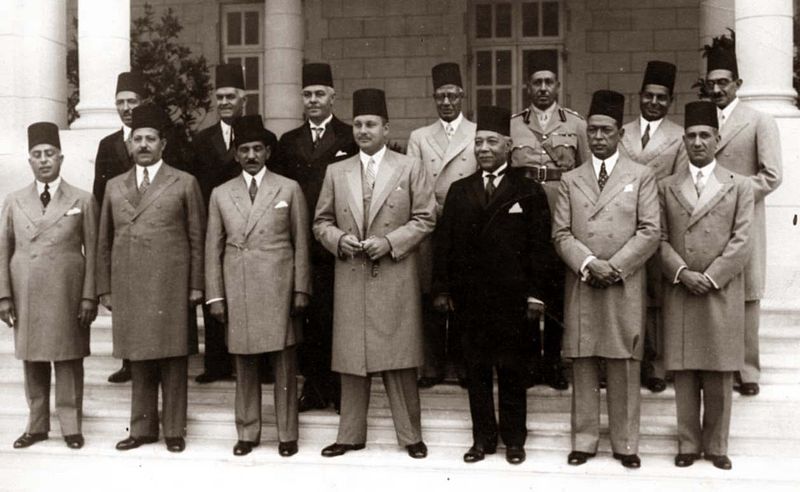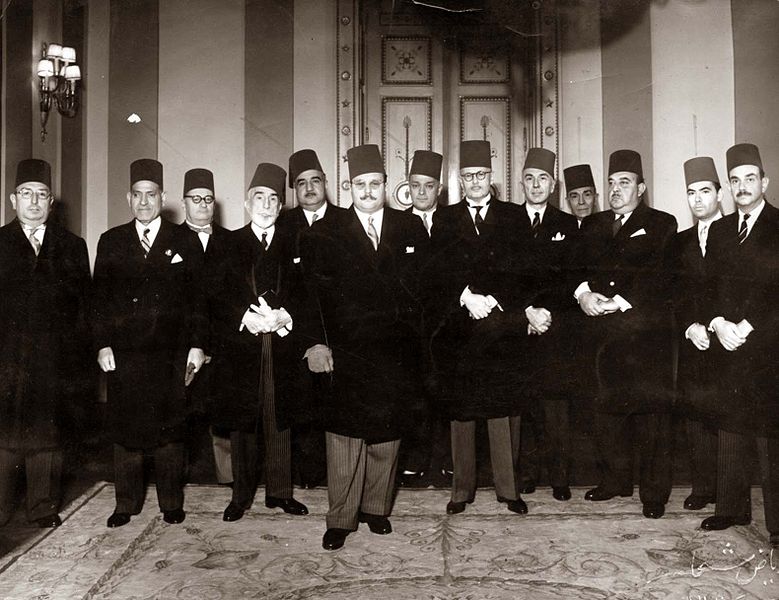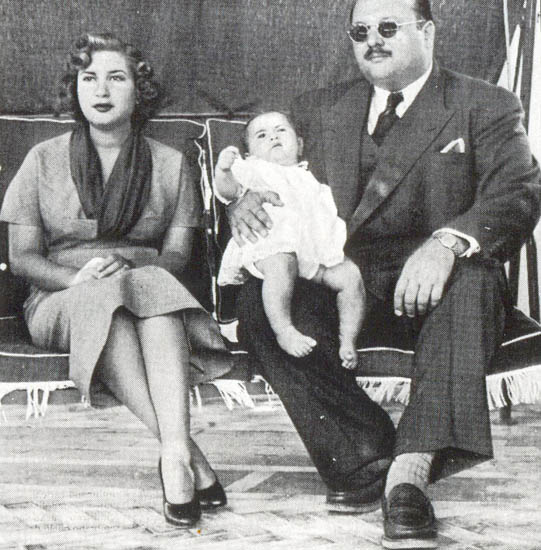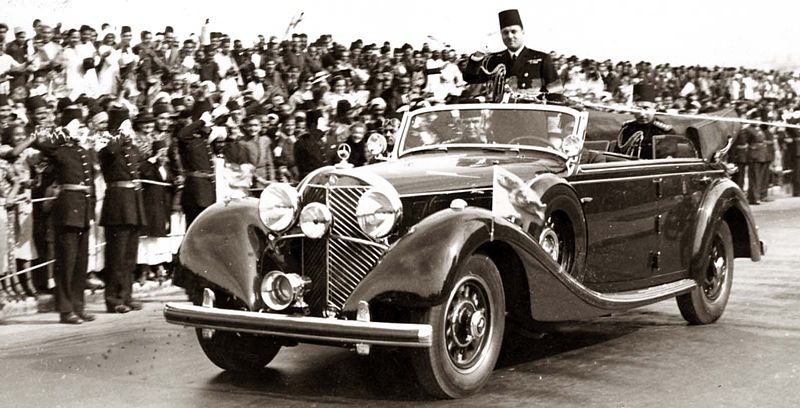<Back to Index>
- King of Egypt and the Sudan Farouk I, 1920
PAGE SPONSOR

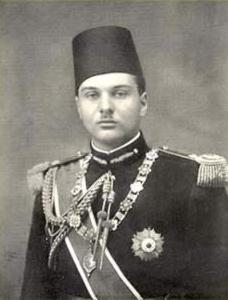
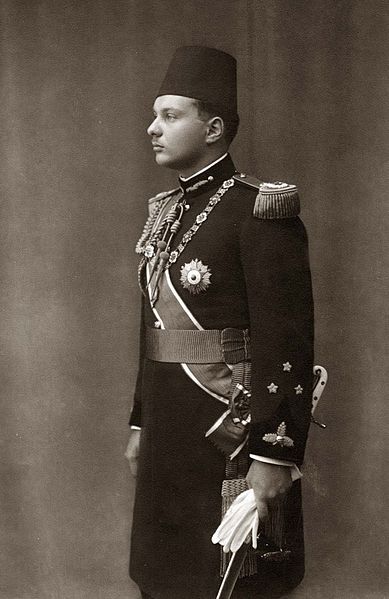
Farouk I of Egypt (Arabic: فاروق الأول Fārūq al-Awwal) (11 February 1920 – 18 March 1965), was the tenth ruler from the Muhammad Ali Dynasty and the penultimate King of Egypt and Sudan, succeeding his father, Fuad I, in 1936.
His full title was "His Majesty Farouk I, by the grace of God, King of Egypt and Sudan, Sovereign of Nubia, of Kordofan, and of Darfur." He was overthrown in the Egyptian Revolution of 1952, and was forced to abdicate in favor of his infant son Ahmed Fuad, who succeeded him as King Fuad II. He died in exile in Italy. His sister was Princess Fawzia Fuad, first wife and Queen Consort of the Shah of Iran Mohammad Reza Pahlavi. As Crown Prince, Farouk held the rank of First Scout of Egypt.
The great - great - grandson of Khalid Kamel Pasha, Farouk was of Albanian descent as well as native Egyptian and Turkish descent through his mother Queen Nazli Sabri. Before his father's death, he was educated at the Royal Military Academy, Woolwich, England. Upon his coronation, the hugely popular 16 year old King Farouk made a public radio address to the nation, the first time a sovereign of Egypt had ever spoken directly to his people in such a way:
| “ | And if it is God's will to lay on my shoulders at such an early age the responsibility of kingship, I on my part appreciate the duties that will be mine, and I am prepared for all sacrifices in the cause of my duty... My noble people, I am proud of you and your loyalty and am confident in the future as I am in God. Let us work together. We shall succeed and be happy. Long live the Motherland! | ” |
Farouk was enamored of the glamorous royal lifestyle. Although he already had thousands of acres of land, dozens of palaces, and hundreds of cars, the youthful king would often travel to Europe for grand shopping sprees, earning the ire of many of his subjects. It is said that he ate 600 oysters a week.
He was most popular in his early years and the nobility largely celebrated him. For example, during the accession of the young King Farouk, "the Abaza family had solicited palace authorities to permit the royal train to stop briefly in their village so that the king could partake of refreshments offered in a large, magnificently ornamented tent the family had erected in the train station."
Farouk's accession initially was encouraging for the populace and nobility, due to his youth and Egyptian roots through his mother Nazli Sabri. However, the situation was not the same with some Egyptian politicians and elected government officials, with whom Farouk quarreled frequently, despite their loyalty in principle to his throne.
During the hardships of World War II, criticism was leveled at Farouk for his lavish lifestyle. His decision to not put out the lights at his palace in Alexandria, during a time when the city was blacked out because of German and Italian bombing, was deemed particularly offensive by Egyptian people. Due to the continuing British occupation of Egypt, many Egyptians, Farouk included, were positively disposed towards Germany and Italy, and despite the presence of British troops, Egypt remained officially neutral until the final year of the war. Consequently, the royal Italian servants of Farouk were not interned, and there is an unconfirmed story that Farouk told British Ambassador Sir Miles Lampson (who had an Italian wife), "I'll get rid of my Italians when you get rid of yours". In addition, Farouk was known for harboring certain Axis sympathies and even sending a note to Hitler saying that an invasion would be welcome. Farouk only declared war on the Axis Powers under heavy British pressure in 1945, long after the fighting in Egypt's Western Desert had ceased.
Farouk
is also reported as having said "The whole world is in revolt. Soon
there will be only five Kings left — the King of England, the King of
Spades, the King of Clubs, the King of Hearts, and the King of
Diamonds."
Farouk was widely condemned for his corrupt and ineffectual governance, the continued British occupation, and the Egyptian army's failure to prevent the loss of 78% of Palestine to the newly formed State of Israel in the 1948 Arab - Israeli War. Public discontent against Farouk rose to new levels. In the CIA, the project to overthrow King Farouk, internally known as "Project FF [Fat Fucker]", was initiated by CIA operative Kermit Roosevelt, Jr. The CIA was disappointed in King Farouk for not improving the functionality and usefulness of his government, and had actively supported the toppling of King Farouk by the Free Officers. Finally, on 23 July 1952, the Free Officers Movement under Muhammad Naguib and Gamal Abdel Nasser staged a military coup that launched the Egyptian Revolution of 1952. Farouk was forced to abdicate, and went into exile in Monaco and Italy where he lived for the rest of his life. Immediately following his abdication, Farouk's baby son, Ahmed Fuad was proclaimed King Fuad II, but for all intents and purposes Egypt was now governed by Naguib, Nasser and the Free Officers. On 18 June 1953, the revolutionary government formally abolished the monarchy, ending 150 years of the Muhammad Ali dynasty's rule, and Egypt was declared a republic.
The revolutionary government quickly moved to auction off the King's vast collection of trinkets and treasures. Among the more famous of his possessions was one of the rare 1933 Double Eagle coins, though the coin disappeared before it could be returned to the United States. He was also notorious for his collection of pornography.
On his exile from Egypt, Farouk settled first in Monaco, and later in Rome, Italy. On 29 April 1958, the United Arab Republic issued rulings revoking the Egyptian citizenship of Farouk. He was granted Monegasque citizenship in 1959 by his close friend Prince Rainier III.
The blue eyed Farouk was thin early in his reign, but later gained enormous weight. His taste for fine cuisine made him dangerously obese, weighing nearly 300 pounds (136 kg) — an acquaintance described him as "a stomach with a head". He died in the Ile de France restaurant in Rome, Italy on 18 March 1965. He collapsed and died at his dinner table following a characteristically heavy meal. While some claim he was poisoned by Egyptian Intelligence, no official autopsy was conducted on his body. His will stated that his burial place should be in the Al Rifa'i Mosque in Cairo, but the request was denied by the Egyptian government under Gamal Abdel Nasser, and he was going to be buried in Italy. King Faisal of Saudi Arabia stated he would be willing to have King Farouk buried in Saudi Arabia, upon which President Nasser agreed for the former monarch to be buried in Egypt, not in the Mosque of Al Rifai' but in the Ibrahim Pasha Burial Site.
A likely apocryphal story
about Farouk's lavish living in exile was that he refused to donate
money to relieve poverty on the basis that "If I donate my fortune to
buy food, all of Egypt eats today, eats tomorrow, and the day after that
they are starving once again", thus rationalizing his high living.
In addition to an affair with the British writer Barbara Skelton, among numerous others, Farouk was married twice, with a claim of a third marriage. His first wife was Safinaz Zulficar (1921 – 1988), the daughter of Youssef Zulficar Pasha.
Safinaz was renamed Farida upon her marriage. They were married in
1938, and divorced in 1948, producing three daughters. Farouk's second
wife was a commoner, Narriman Sadek (1934 – 2005). They were married in 1951, and divorced in 1954, having only one child, the future King Fuad II. While in exile in Italy, Farouk met Irma Capece Minutolo, an opera singer, who became his companion. In 2005, she claimed that she married the former King in 1957.
The ostentatious king's name is used to describe imitation Louis XV - style furniture known
as "Louis - Farouk". The imperial French style furniture became
fashionable among Egypt's upper classes during Farouk's reign so
Egyptian artisans began to mass produce it. The style uses ornate
carving, is heavily gilded, and covered in very elaborate cloth. The style, or imitations thereof, remains widespread in Egypt.
King Farouk amassed one of the most famous coin collections in history which included a extremely rare American Gold Minted 1933 Double Eagle coin.
